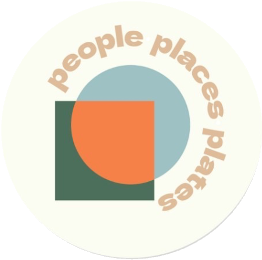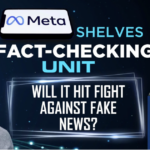In the first installment of the “State of Media and Information Literacy in the Philippines” series, we delve into how Media and Information Literacy (MIL) plays a pivotal role in empowering citizens, combating misinformation, and enhancing democratic participation.

The Role of Media and Information Literacy in Democracy
At the heart of any thriving democracy is an informed and engaged populace. The choices made by citizens can determine the trajectory of a nation, underscoring the importance of Media and Information Literacy (MIL) in shaping responsible voters. MIL equips individuals with the skills necessary to navigate an overwhelming information landscape, distinguish between credible facts and falsehoods, and make well-informed decisions that impact their communities and their own lives.
In today’s digital era, where misinformation can easily spread and sow division, MIL is more crucial than ever. It serves as a safeguard, protecting citizens from manipulative actors who may exploit information for their own gain, often at the expense of the majority. By fostering critical thinking and discernment, MIL helps maintain the integrity of democratic processes and protects citizens from being misled.
Defining Media and Information Literacy (MIL)
Media and Information Literacy refers to the set of skills and knowledge required to effectively access, evaluate, and create information and media content. It empowers individuals to think critically, make informed decisions, and actively participate in society and democratic processes.
The Importance of MIL in Democratic Societies
In a democracy, the quality of decisions made by citizens hinges on the accuracy of the information they receive. Without MIL, people are more susceptible to misinformation, which can distort democratic processes and erode trust in institutions. The consequences of misinformation can be far-reaching, from skewed election outcomes to deepening social divides. For instance, the UK’s Brexit decision and the increasing polarization in the US political landscape highlight the dangers of misinformation.
MIL aims to mitigate these harmful effects by fostering a more informed and discerning citizenry. By prioritizing accurate information and minimizing the spread of falsehoods, MIL strengthens the foundation of democracy and ensures that citizens are better equipped to make decisions that benefit society as a whole.
Addressing the Challenges of Misinformation
The digital revolution has drastically altered how information is consumed, particularly among younger generations who rely more on social media than traditional news sources. Unfortunately, social media platforms are often rife with unverified information, and accountability for spreading falsehoods is lacking.
As misinformation continues to proliferate, the threats to democracy become more pronounced. MIL plays a critical role in helping individuals assess the reliability of the information they encounter and recognize media biases. By doing so, it fosters more balanced perspectives and encourages citizens to form informed opinions.
MIL and the Development of Critical Thinking
At its core, MIL is about cultivating critical thinking skills. This includes questioning the credibility of information sources, recognizing biases, and being open to challenging one’s own beliefs. Such skills are essential for holding media outlets and other information providers accountable, ensuring that citizens receive accurate and balanced information.
By promoting critical thinking, MIL also strengthens democratic engagement. Informed citizens are more likely to participate in discussions, vote thoughtfully, and advocate for transparency and accountability in governance.
The Consequences of Misinformation in the Digital Era
Misinformation, defined as false or misleading information, can have serious repercussions. It can distort public opinion, manipulate electoral outcomes, and deepen societal divisions. In extreme cases, misinformation can erode trust in institutions and even incite violence, undermining public order.
Combating Misinformation Through MIL
Promoting Media and Information Literacy is a key strategy in the fight against misinformation. Education systems play a vital role in this effort by incorporating critical thinking and media literacy into their curricula. By teaching students to discern fact from fiction and recognize biases in the content they consume, schools can help create a more media-savvy generation.
Meanwhile, social media companies must also take responsibility. By promoting transparency, offering tools for users to report misinformation, and limiting the spread of false content, these platforms can contribute to a more media-literate society.
MIL as a Defense Against Misinformation
With MIL, individuals are better equipped to identify credible sources, verify information, and share content responsibly. By fostering skepticism and encouraging critical thinking, MIL helps reduce the spread of misinformation, ultimately promoting a more informed and engaged citizenry.
Conclusion: Strengthening Democracy Through Media and Information Literacy
In an age where misinformation can spread like wildfire, Media and Information Literacy is an essential tool for bolstering democracy. It empowers citizens to make informed decisions, hold leaders accountable, and actively participate in civic life. By prioritizing MIL initiatives, we can build a resilient democracy capable of withstanding the challenges of the digital era.
About Kwento Co
Kwento Co is a vibrant and diverse platform dedicated to advancing media and information literacy. Our team, composed of content creators, artists, influencers, and young entrepreneurs, is passionate about helping businesses of all sizes navigate the digital landscape through tailored marketing strategies that resonate with their brand values.





